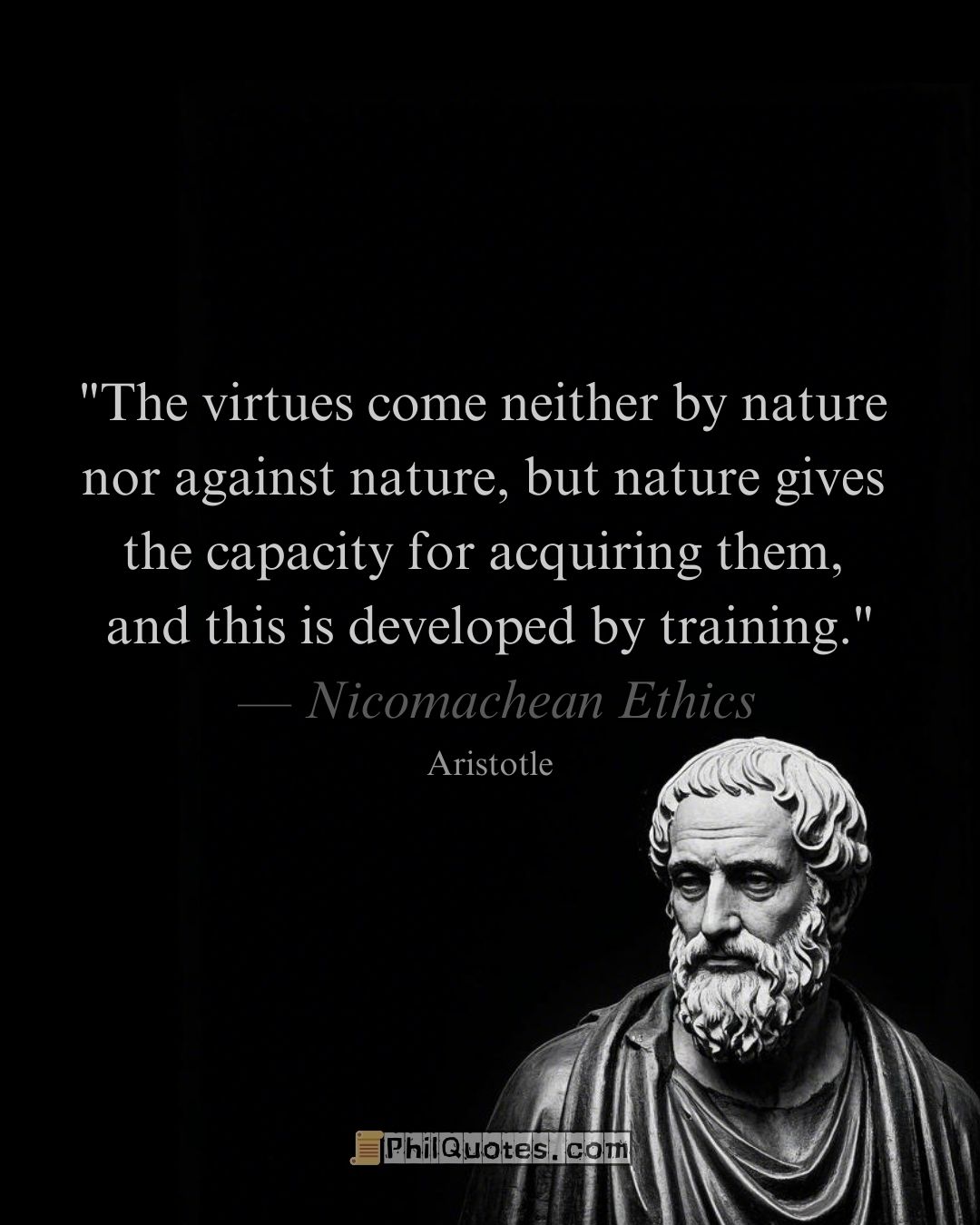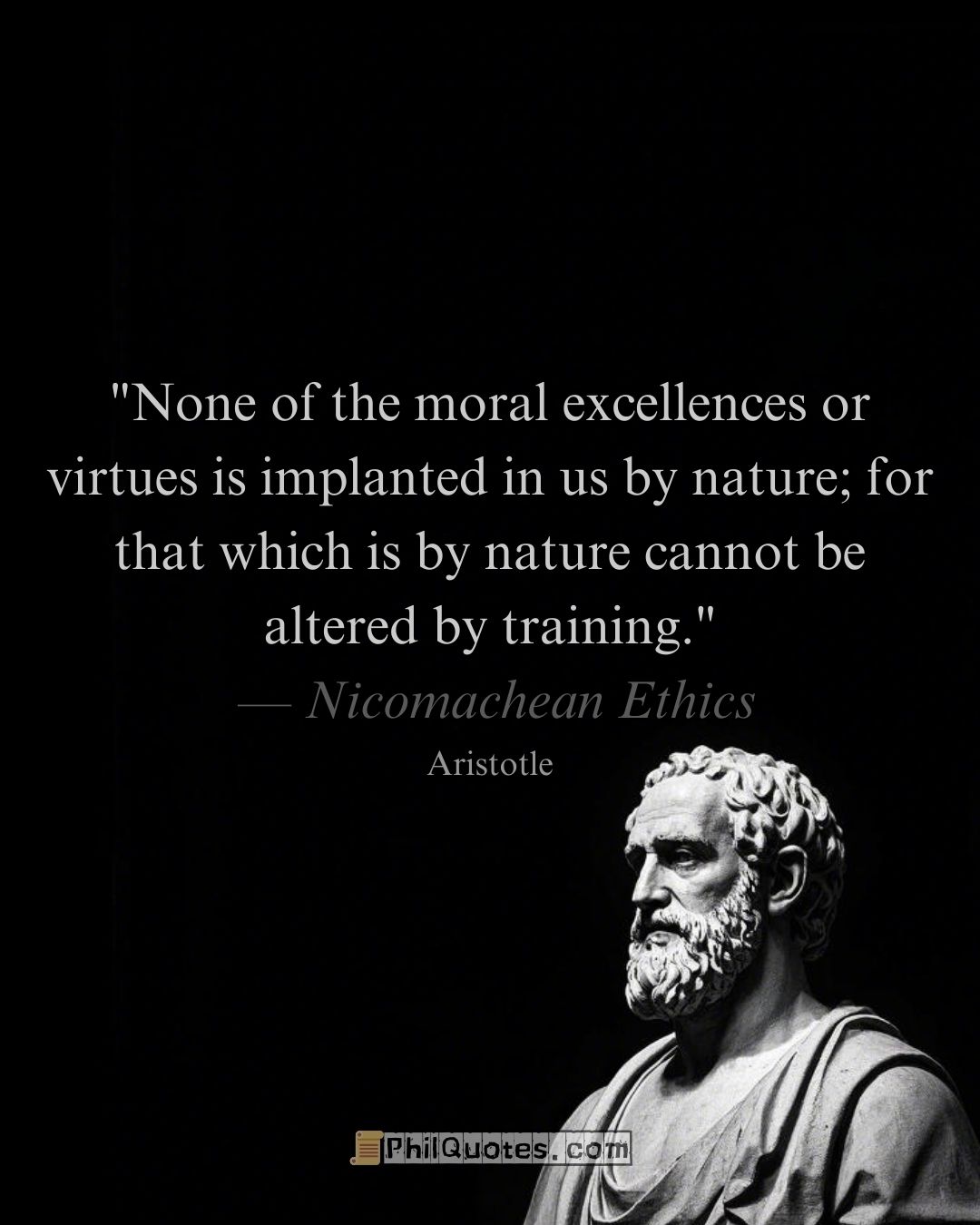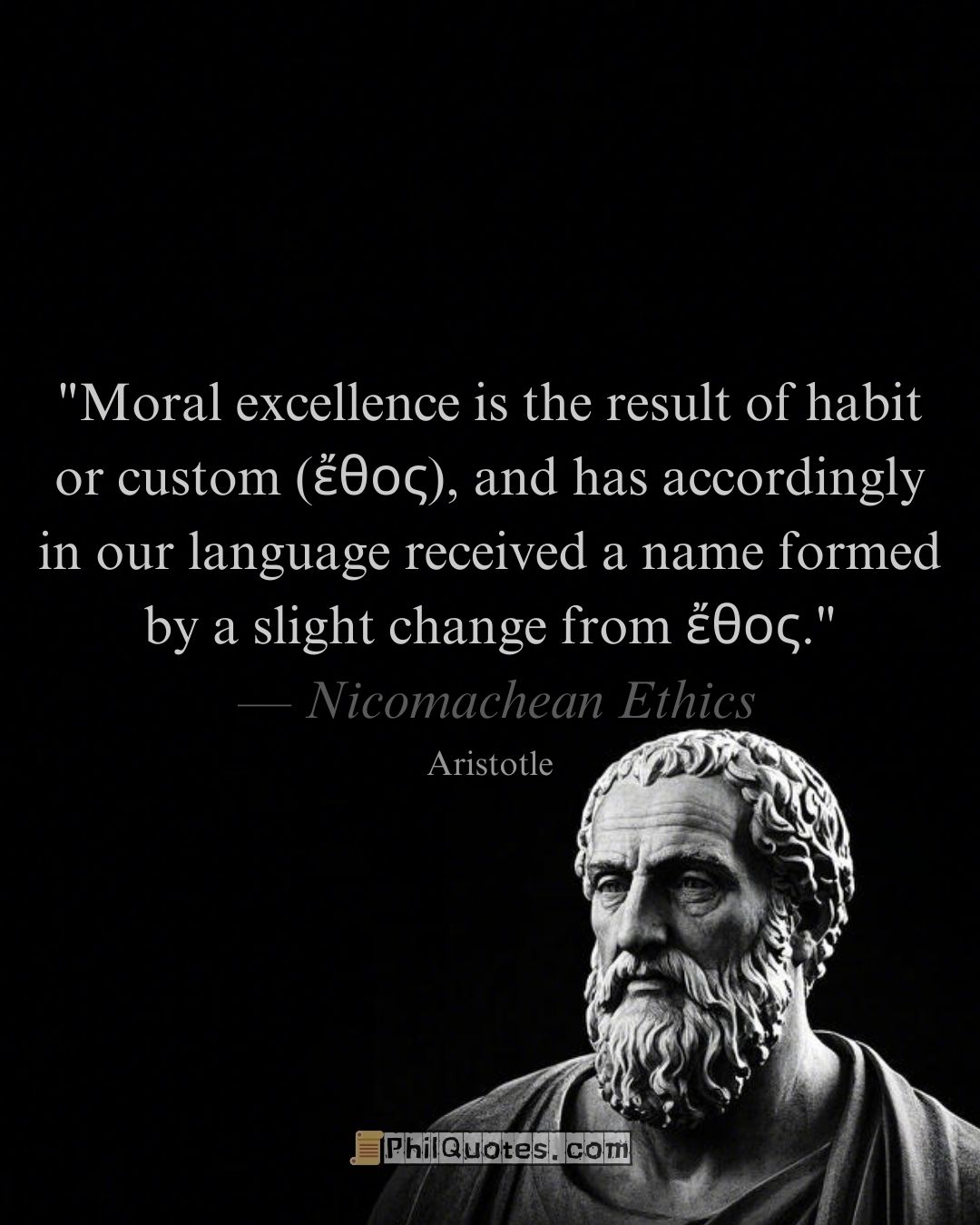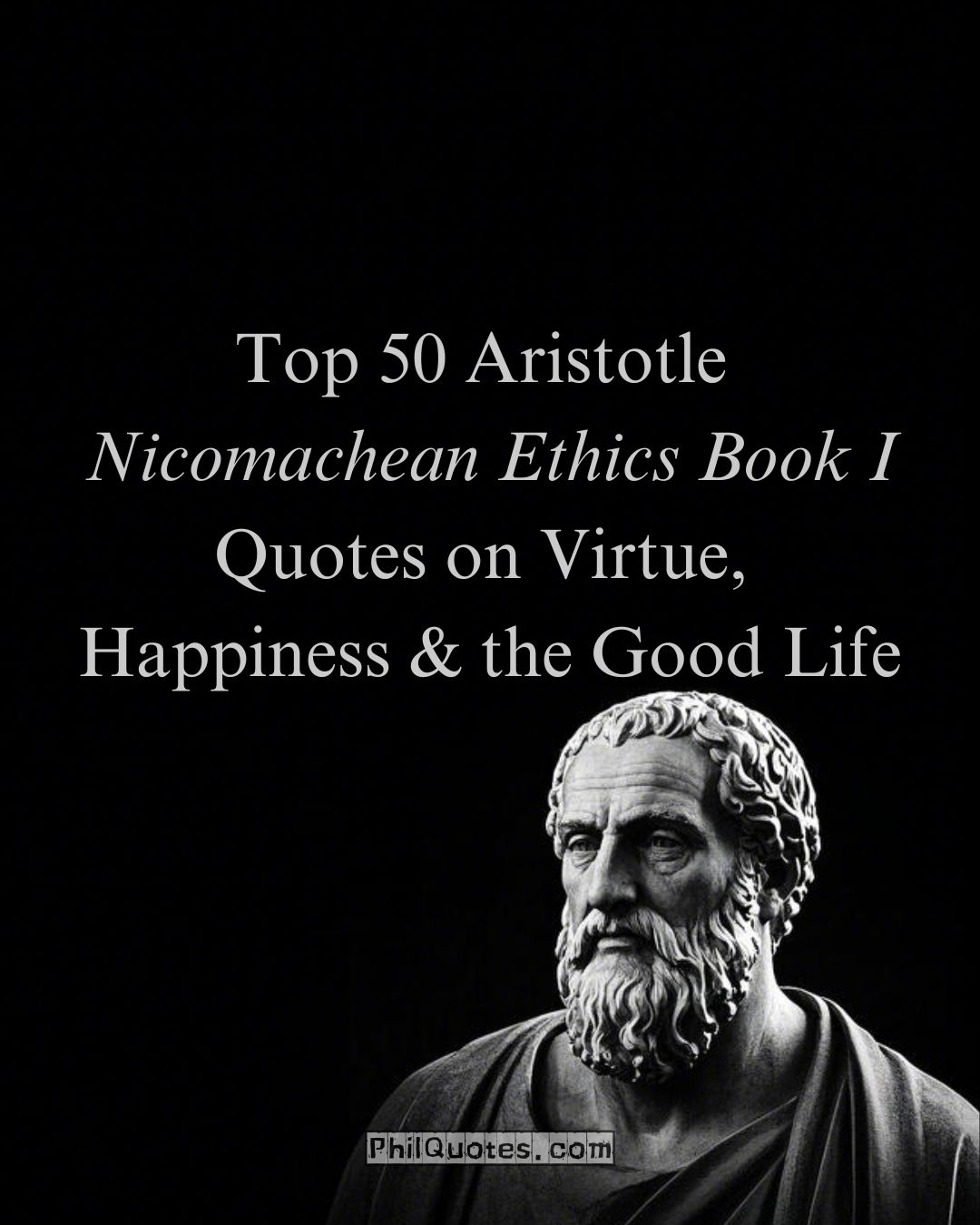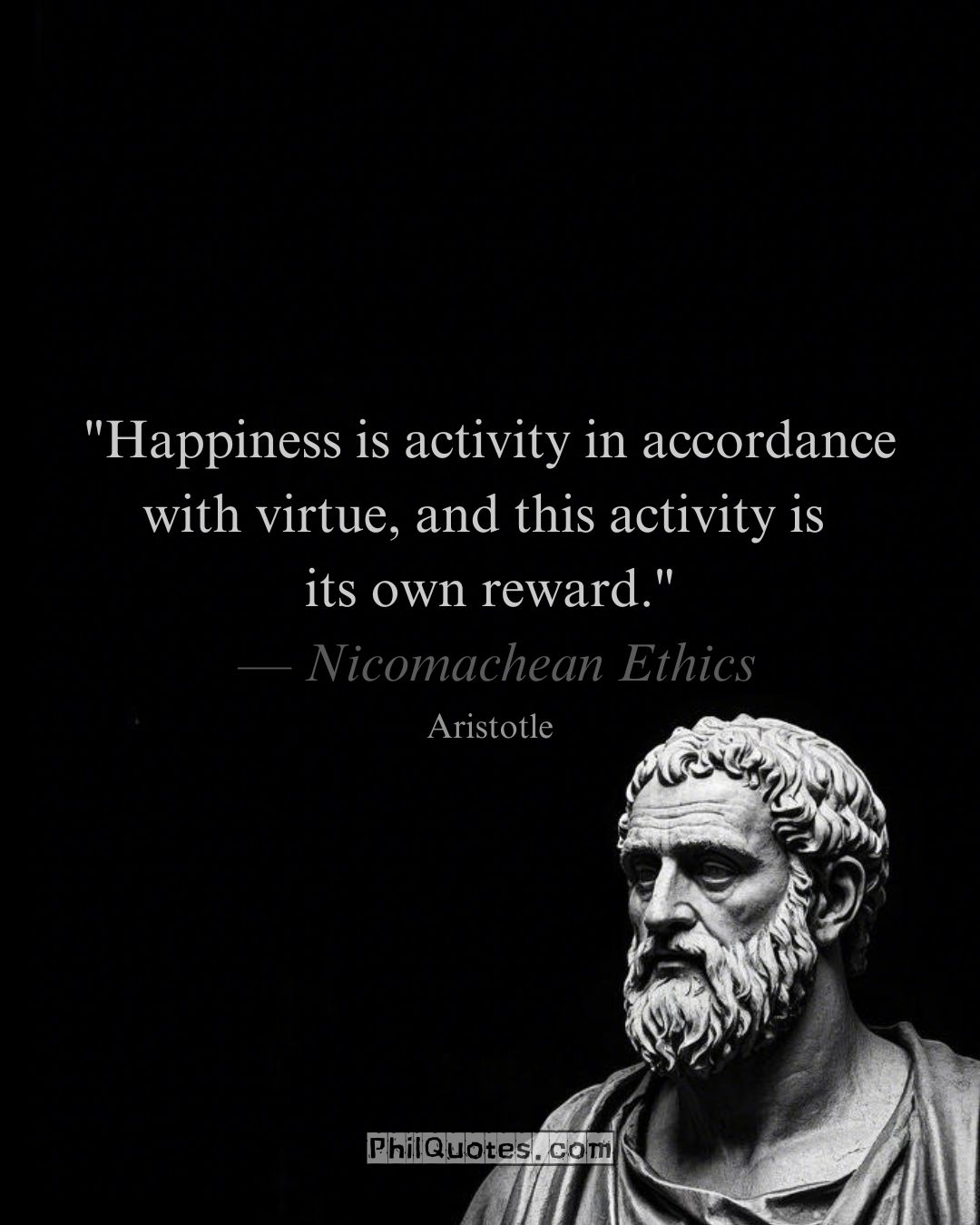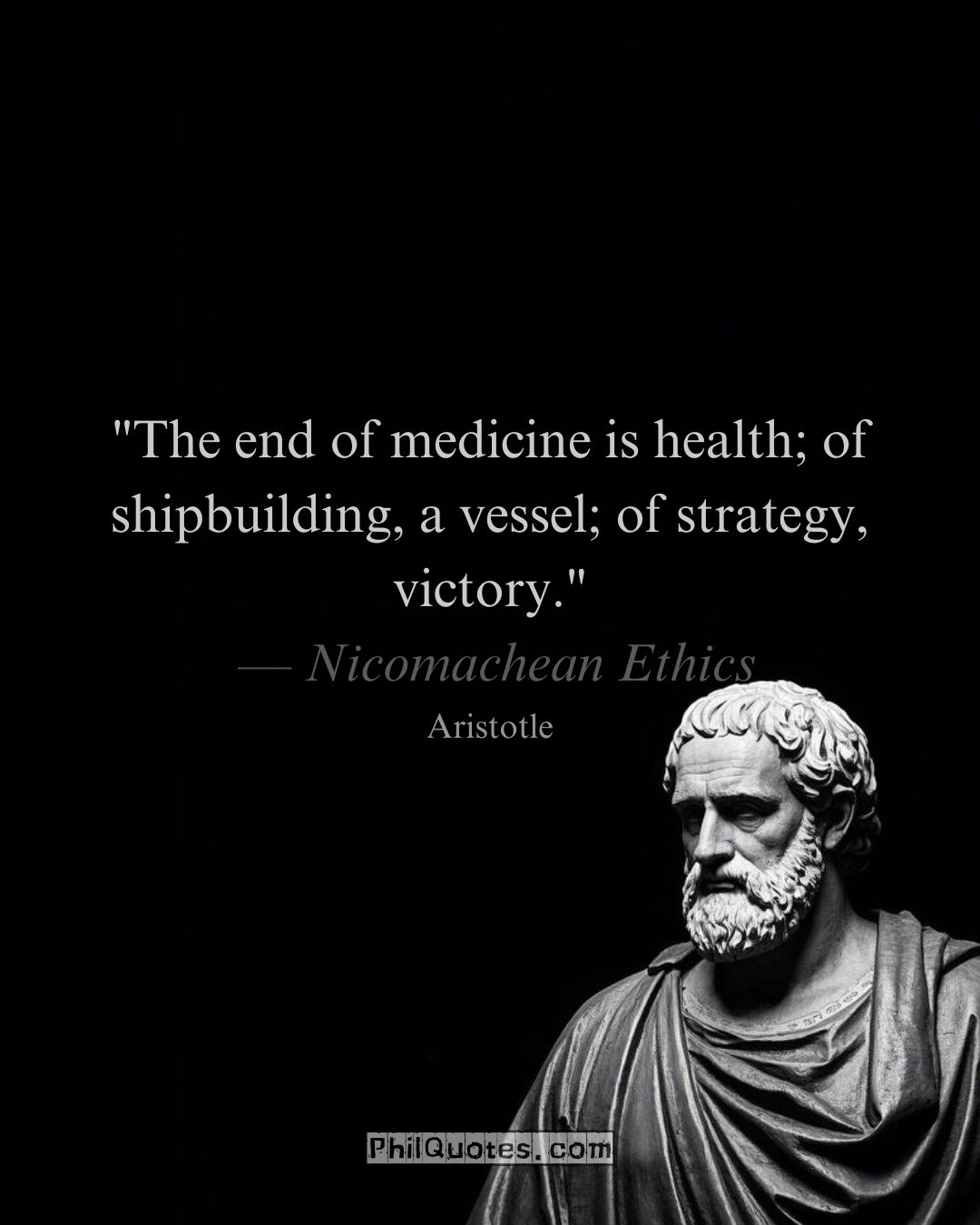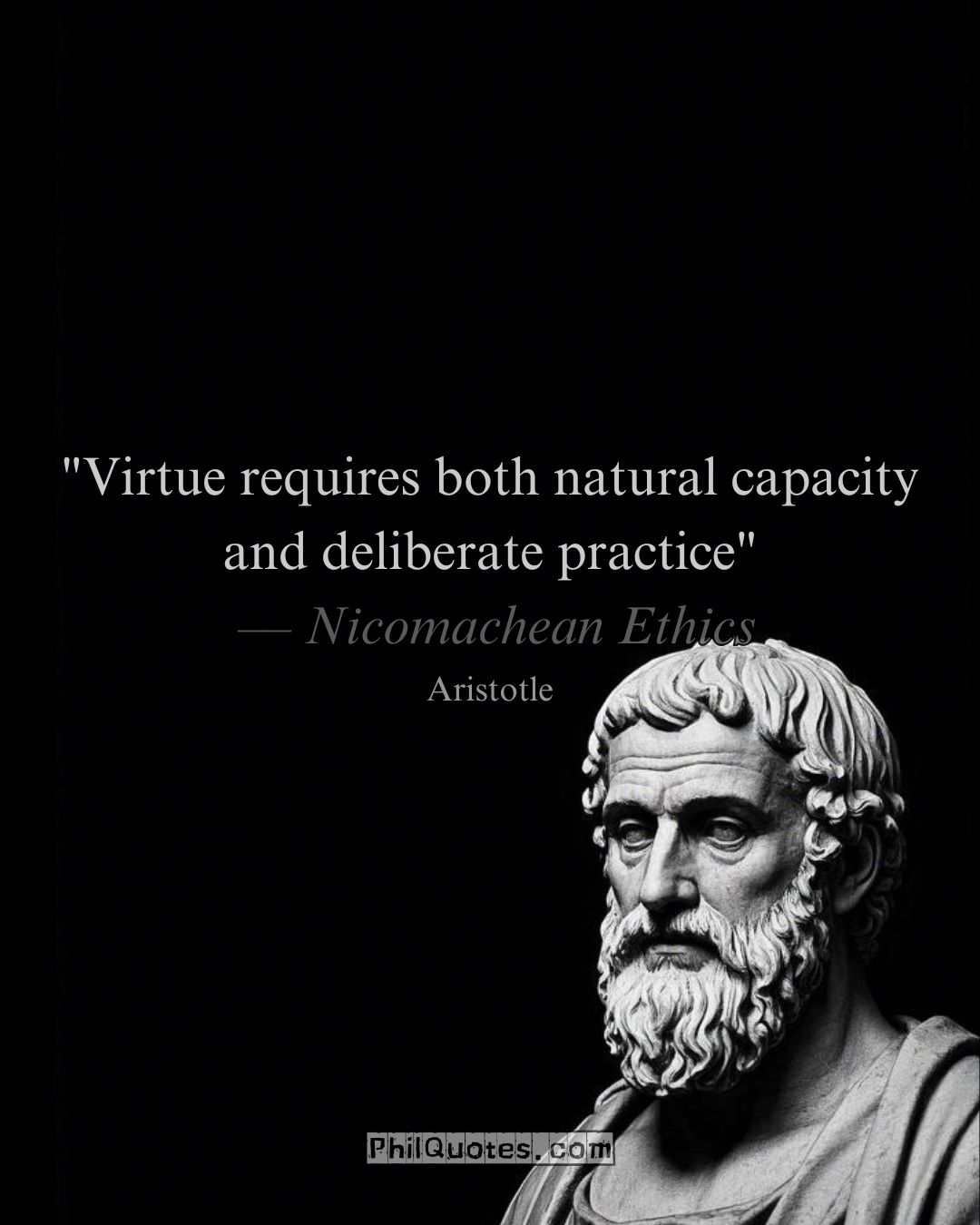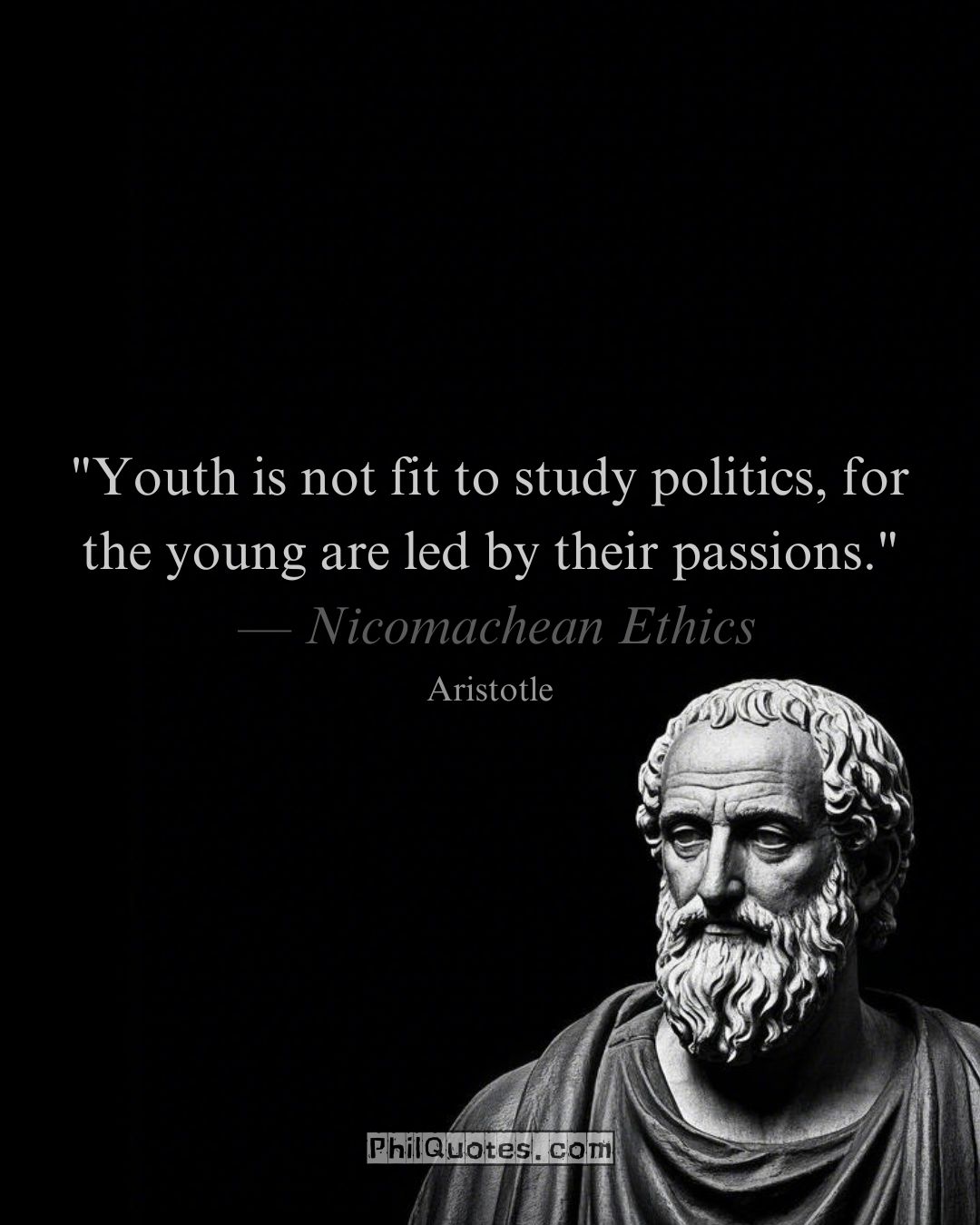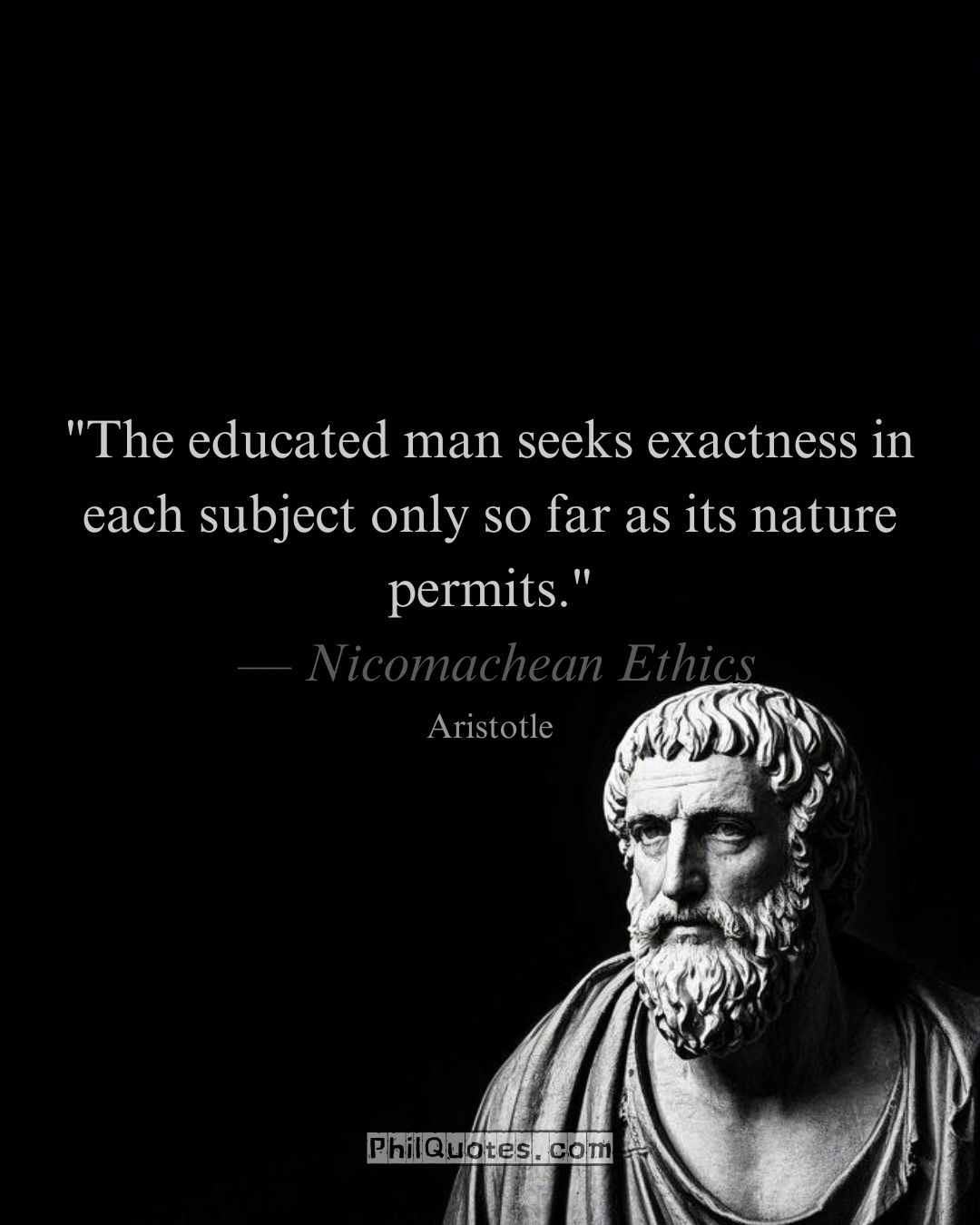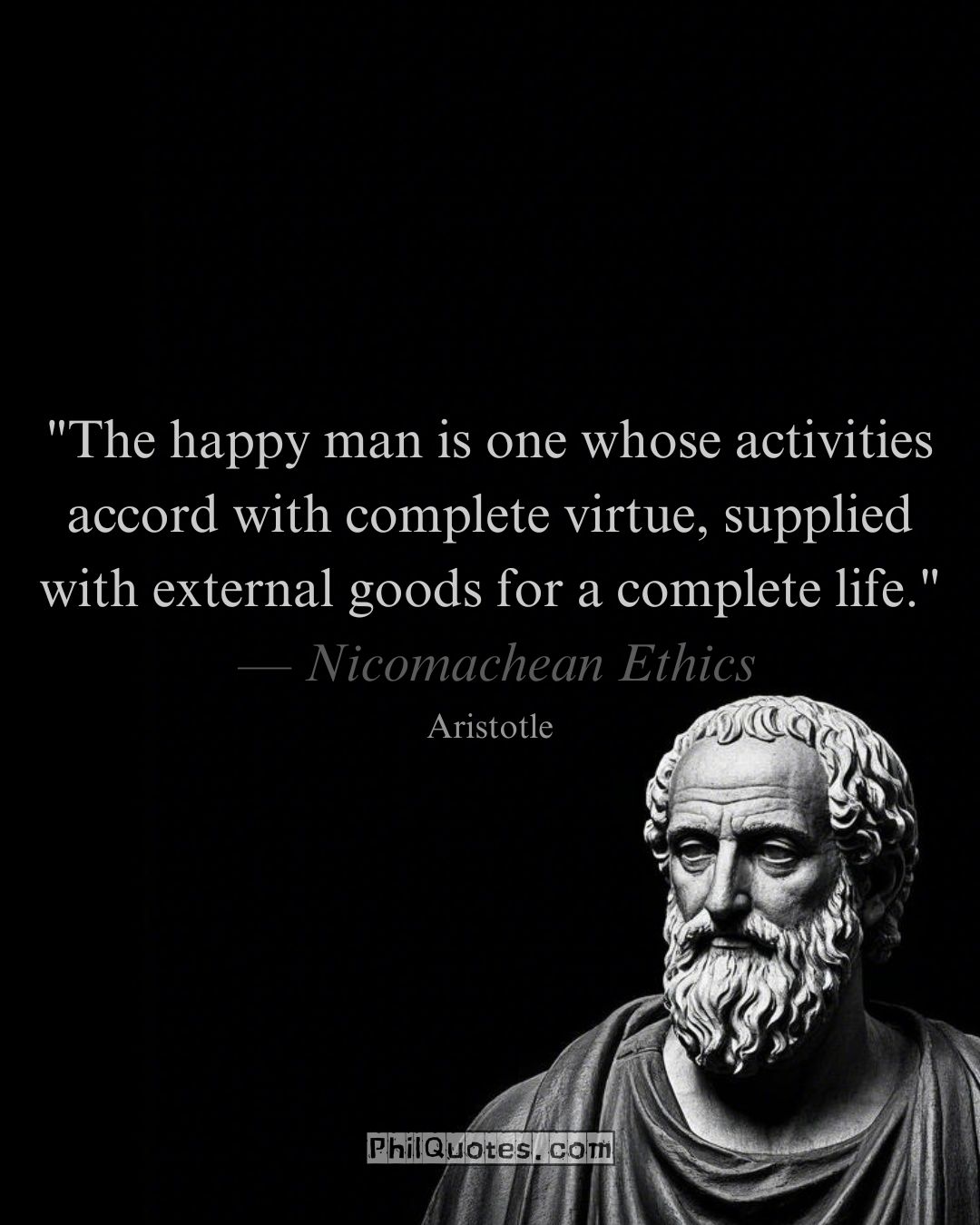Aristotle Nicomachean Ethics Quote:“The virtues come neither by nature nor against nature, but nature gives the capacity for acquiring them, and this is developed by training.”
Quote“The virtues come neither by nature nor against nature, but nature gives the capacity for acquiring them, and this is developed by training.”— Aristotle, Nicomachean Ethics, Book II, Chapter 1 Core Idea Virtues are like raw musical talent – you’re born with the potential to play piano, but only daily practice turns scales into symphonies. … Read more
